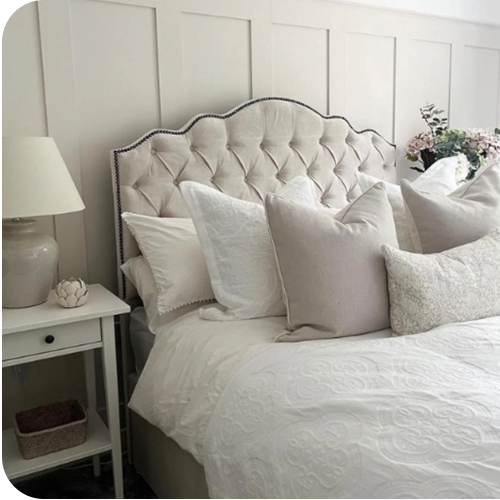Unveiling the Hidden Legacy of Footstools: Beyond a Mere Footrest
Have you ever paused to consider the humble footstool, that unassuming piece of furniture tucked beneath your favorite armchair? Often overlooked, footstools have a secret history veiled in their fabric and design. Beyond being mere footrests, they hold a rich legacy that traverses cultures and epochs. Let’s unveil the hidden story of the footstool and its significance through the ages.
Table of contents
Origin of the Footstool
Footstools trace their origins back centuries, evolving from rudimentary wooden structures to intricately designed pieces of furniture. Ancient civilizations, including the Egyptians and Greeks, used early prototypes to elevate their feet while reclining, indicating early recognition of comfort and support.

Cultural Significance and Evolution
Transitioning through history, footstools underwent a transformation, mirroring the cultural shifts of societies worldwide. In Europe, during the Renaissance, footstools became a symbol of status and luxury. Elaborately adorned and crafted, they were reserved for the elite, denoting wealth and opulence.
| Time Period | Cultural Significance | Evolution of Footstools |
| Renaissance (Europe) | Symbol of status and luxury | Elaborate, ornate designs crafted for the elite, representing wealth |
| Industrial Revolution | Shift towards functionality | Transition to more functional designs, often mass-produced |
| Modern Era | Accessibility and versatility | Diverse styles catering to different needs; materials vary widely |
| Contemporary Times | Fusion of design and technology | Integration of innovative materials, ergonomic designs, tech-enabled |
Utility Redefined: Beyond Foot Support
Beyond their primary function of supporting tired feet, footstools proved versatile in usage. Transition words like “Moreover” and “Additionally” here illustrate expansion:
- Moreover, footstools doubled as impromptu seating during gatherings, offering portable and convenient extra seating options.
- Additionally, they found utility as makeshift tables for holding books, trays, or even as a stable platform for children’s activities.
Modern Resurgence and Design Revolution
With the dawn of the 20th century, footstools underwent a design revolution, shedding their extravagant ornamentation for sleek, minimalist styles. Transitioning into the modern era, they became more accessible, fitting seamlessly into contemporary interior design schemes.
In contrast to their ornate predecessors, modern footstools focus on functionality and aesthetics, embracing minimalism and ergonomic designs to complement diverse decor styles.

The Footstool Today:
Today, footstools have transcended their traditional role. Versatile, they serve as multifunctional pieces, adapting to diverse needs within a home. Employing transition words like “Furthermore” helps connect ideas:
Furthermore, footstools now incorporate storage compartments, serving as discreet yet convenient storage solutions in smaller living spaces.
Additionally, their role extends beyond the living room, finding a place in bedrooms and home offices, catering to various ergonomic needs.
- Elevates legs and improves circulation: Relieves pressure on legs and feet, reducing aches and swelling. Perfect for long days or after strenuous activity.
- Boosts comfort: Adds an extra layer of coziness to any chair or sofa, providing optimal support for your feet and knees.
- Improves posture: Promotes proper alignment when used with certain seating positions, aiding in back and neck comfort.
- Multifunctional marvel: Doubles as a side table, extra seating, or a place to display books or magazines. Adds versatility to any living space.
- Space-saving savior: Compact and portable, easily stored under furniture or tucked away when not in use. Ideal for smaller apartments or homes.
- Decorative delight: Available in a variety of styles and materials to complement any interior design, adding a touch of personality to your space.
Conclusion
In conclusion, the footstool, often underestimated, holds a multifaceted history and significance far beyond being a mere footrest. From its ancient roots to its modern adaptations, it has continually evolved, leaving an indelible mark on our cultural landscape. So, the next time you rest your feet upon a footstool, remember its journey through time, from a symbol of status to a versatile companion in our daily lives.
Readmore : Christmas Deals on Footstools: Unwrap Comfort and Style
FAQ’s
Footstools offer several benefits beyond just providing a resting place for your feet. They promote better posture by aligning the body, reducing strain on the lower back and legs.
When selecting a footstool, consider its purpose, size, and design. Measure the available space to ensure the footstool fits comfortably without overcrowding.
No, footstools come in a wide range of designs, making them suitable for various decor styles. While traditional footstools may feature ornate designs and fabrics.
Footstools are incredibly versatile. Apart from providing foot support, they can function as extra seating, a small side table, or even storage space.



